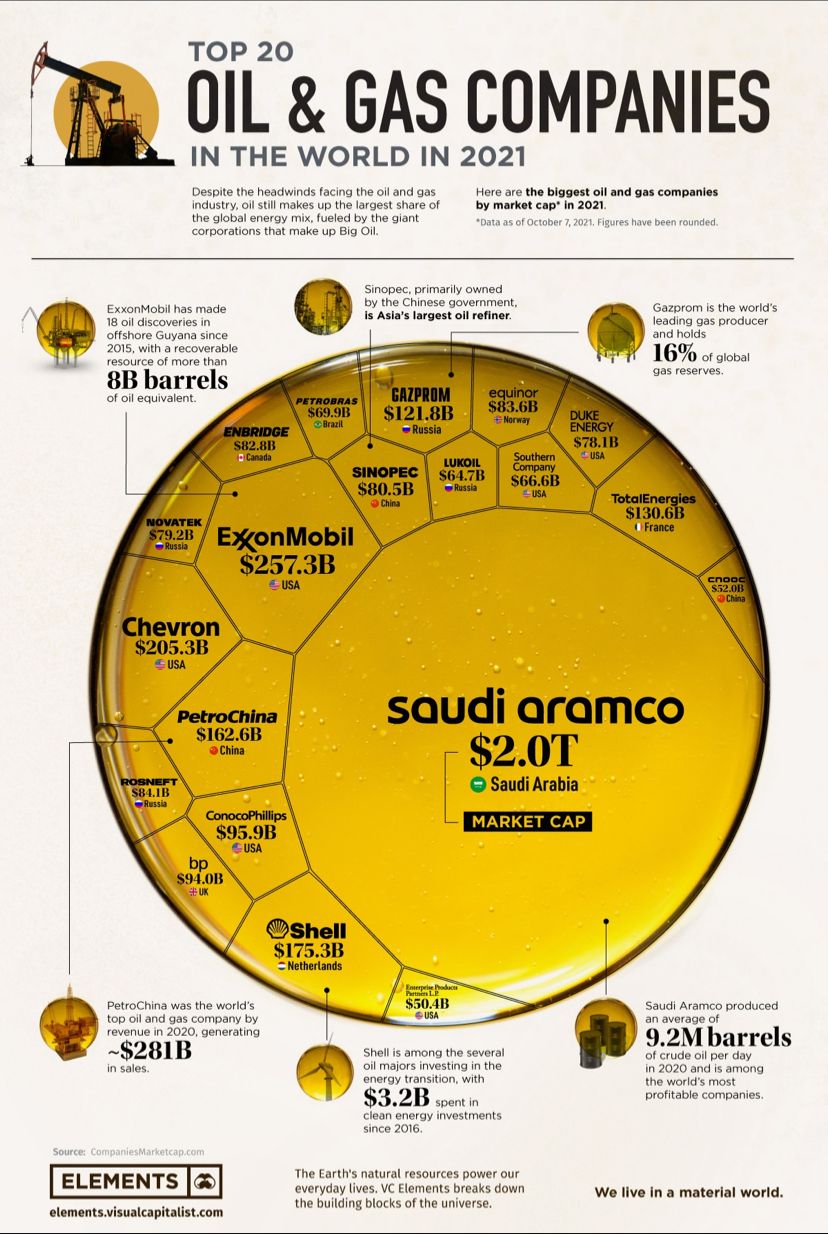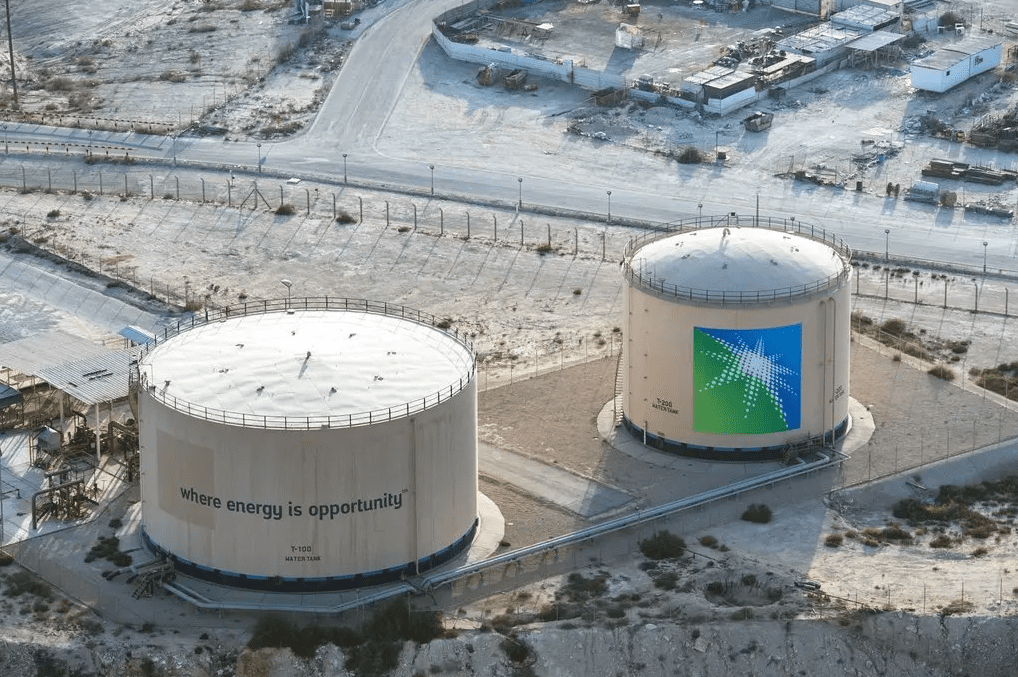While much of the global dialogue on energy transition from fossil fuels to renewables tends to focus on majors like ExxonMobil and Shell, it is the national oil companies (NOCs) that must be part of the conversation as well, said Special Advisor to the Executive Director of the International Energy Agency (IEA), Alessandro Blassi.

In a LinkedIn post on Saturday, Blassi said that having NOCs in on the sustainability dialogue is fundamental for the future of the sector, and for the destinies of those countries that rely heavily on those revenues.
He said in the media, it may look like it’s the western companies controlling the sector, but that it is just enough looking at the data to see that the reality is very different.
He showed using data from Visual Capitalist why this is so important. The data shows that while ExxonMobil had a market cap of US$257.3 billion in 2021, it is Saudi Aramco that is the world’s biggest oil and gas company with a market cap more than seven times Exxon’s, at US$2 trillion.
Referring to the Visual Capitalist graphic which shows the top 20 oil and gas companies in the world in 2021 by market cap, Blassi said, “This puts things in perspectives for #oilgas world While everyone looks at so called “Majors” the giants of the sector are others, mainly the State-Owned Companies.”
“Those are in many cases an extension of governments in producing countries managing the vast bulk of #oilandgas reserves…,” he pointed out.
He said that Big Oil in the western world manages just a small percentage of reserves and a similar share in global hydrocarbon production.
OilNOW’s January update of the 20 countries with the world’s largest oil reserves supports this statement. Most of these countries have state-owned or controlled oil and gas companies. Venezuela and Saudi Arabia are first and second globally, with 298 billion and 268 billion barrels respectively. Both of those countries have NOCs, and the latter’s Saudi Aramco is the company that boasted the biggest market cap in 2021 by a long shot.
And while most companies are expected to temper their operations in bids to meet global climate targets, Brazil’s state oil producer, Petrobras is projected to become the world’s largest oil producer among publicly listed companies by 2030, according to Rystad Energy. In 2019, Rystad said that Brazil’s production could be pushed from an average of 2.8 million barrels per day in 2019 to over 5.5 million barrels per day by 2030, thanks to Petrobras’ potential peak output of almost 3.8 million barrels per day.
More recent Rystad projections indicate that Brazil would have total daily output of nearly 5 million barrels per day by 2030, while all other companies would have daily output less than 2 million barrels.




